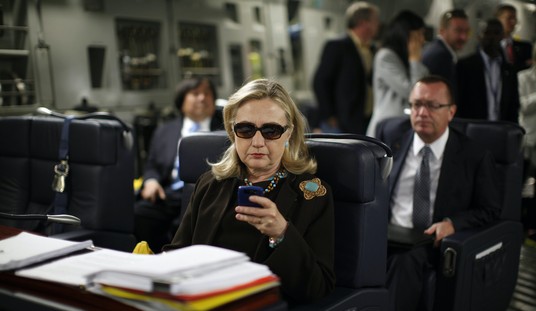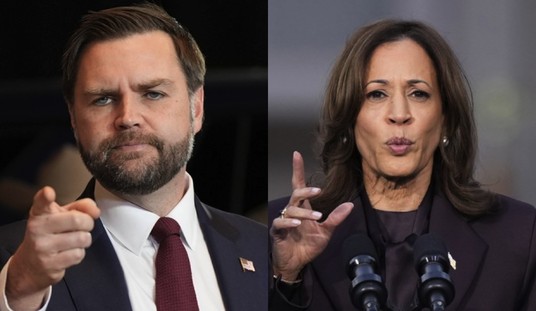It has been a rough couple of weeks for those claiming that Trump is abandoning Taiwan. The administration continues to show its commitment to the self-governed island. Recent examples include President Trump’s “Taiwan is Taiwan” remark, his warning regarding the “consequences” of attempting to take Taiwan, Secretary of War Pete Hegseth raising concerns about China’s actions around the island to China’s Minister of National Defense, and meetings between Taiwanese and U.S. officials at the APEC summit.
🇹🇼 "Taiwan is Taiwan" says President Trump.
— 鈴森はるか 『haruka suzumori』 🇯🇵 (@harukaawake) October 31, 2025
I agree with him completely. Taiwan will never be a part of Communist China. pic.twitter.com/EBYuzYR4cP
Before the Trump-Xi meeting in South Korea, Taiwanese officials expressed strong confidence in the ties between Taipei and Washington.
Though U.S.-Taiwan relations are arguably stronger than they have ever been, despite mainstream media outlets suggesting otherwise, the China-friendly Kuomintang’s (KMT) new leader’s positions and rhetoric raise serious concerns that may irritate ties between the two countries.
Cheng Li-wun was elected to head Taiwan’s opposition KMT in October and was sworn in in November. The party chair is tasked with setting party policy (from cross-strait strategy to domestic policy), unifying the party, controlling party resources, and nominating individuals. The chairmanship holds significant influence over party politics.
Following the failed recalls in Taiwan over the summer, the KMT retained its majority in the Legislative Yuan, ruling in a coalition with the Taiwan People’s Party and closely aligned independent legislators.
Cheng favors closer ties with Beijing. She is willing to meet with Xi to promote “peace and cooperation,” even though Beijing’s goal is to weaken and invade Taiwan, however that may happen. She recently asserted that “Beijing does not want to turn Taiwan into the next Hong Kong.”
She has also openly disputed claims that Putin is a dictator, referring to him as a democratically elected leader, while blaming NATO for the Ukraine war. This type of pro-Kremlin propaganda—which Beijing also promotes, since it has an interest in prolonging the war—aims to divide and diminish the influence of the West. It goes against the Trump administration’s efforts to rally countries—including NATO allies—to end the fighting.
Watch how Taiwan's newly elected opposition Kuomintang leader Cheng Li-wun pushed back against the implication that Russian President Vladimir Putin is a dictator in an interview with DW. pic.twitter.com/Q9BTIynnc1
— DW Asia (@dw_hotspotasia) November 1, 2025
Secretary of War Describes Positive Meeting With Chinese Counterpart, Hints at What Happens Next
Unsurprisingly, Xi and Chinese state media welcomed her election as the KMT’s chair with enthusiasm. Beijing allegedly interfered in the chair race by boosting Cheng over moderate candidates.
Cheng Li-wun, new chairperson of the Chinese Kuomintang (KMT) party of island of Taiwan took office on Saturday, claiming the party will definitely usher in a century of cross-Straits peace, local media reported. pic.twitter.com/mdcH81yDWw
— Global Times (@globaltimesnews) November 1, 2025
Cheng opposes Taiwan President Lai Ching-te’s (Democratic Progressive Party, DPP) budget proposal to raise the island’s defense spending to 3.32 percent of GDP in 2026—which will require the legislature’s approval but is sure to be welcomed by Washington—and to five percent by 2030. She has called such budget increases “unreasonable” and “unaffordable.”
She took aim at the Trump administration, saying that Taiwan will not be a “pawn” in U.S.-China relations and that:
The U.S.'s expectations far exceed what we can reasonably afford. Taiwan is not an ATM. We really do not have that much money.
Above all, her opposition to strengthening Taiwan’s military seems driven by a desire to appease Beijing, claiming that bolstering defenses would antagonize China and lead to an “endlessly escalating arms race.” She is conveniently overlooking Beijing’s military buildup, aggressive exercises around the island, and the construction of a military command center in Beijing that is ten times larger than the Pentagon.
This is a departure from previous KMT chairman Eric Chu’s commitment in June to raise Taiwan’s defense budget above three percent, to potentially 3.5 percent, in a clear signal to Washington.
It appears that under Cheng’s leadership, the KMT will be emboldened not to compromise with President Lai and his pro-independence DPP.
If the KMT ends up rejecting President Lai’s proposal to raise the military budget, there will be serious implications for Taiwan’s national security and U.S.-Taiwan relations. Such a move would amount to a rejection of the Trump administration’s efforts to persuade allies to raise their military spending as part of a renewed focus on burden-sharing, causing the U.S. government to question Taipei’s commitment to deterring China.
The Trump administration, along with members of Congress, will need to press Taiwan’s opposition parties to avoid weakening the island’s national security—and by extension, regional and U.S. security—through irresponsible legislative actions that serve Beijing’s agenda.
According to an unconfirmed report, the Trump administration has already exerted pressure on Taiwan’s opposition parties with respect to defense spending. If true, this is a promising sign—and Washington should build on it. We must distinguish between the different political actors in Taiwan.
If not, it is time to do so. We can’t afford to take our eyes off Taiwan. Should Cheng and her party continue to obstruct necessary defense measures, Washington might have to impose costs for undermining shared security interests.
Editor’s Note: The Schumer Shutdown is here. Rather than put the American people first, Chuck Schumer and the radical Democrats forced a government shutdown for healthcare for illegals. They own this.
Help us continue to report the truth about the Schumer Shutdown. Use promo code POTUS47 to get 74% off your VIP membership.














Join the conversation as a VIP Member